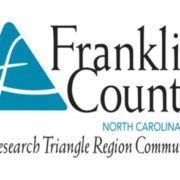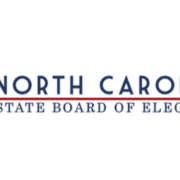During the Civil War, Clara Barton was a nurse who tended to wounded soldiers in hospitals. But Franklin County lays claim to another “angel of mercy” who, during that same time, tended to soldiers on the battlefield.
Abby House, known around Old Granville as Aunt Abby House, was born around 1796, and local historian Mark Pace shared some interesting stories about her on Thursday’s tri-weekly TownTalk history segment. House died in 1881 and is buried in her native Franklin County.
House may not be as famous as Barton, who is best known for being the founder of the American Red Cross, but Pace said she’s a good example of a local version.
“She never got married and she was poor, but she made a difference,” Pace told WIZS co-host Bill Harris.
She had no formal education, he said, but she provided what she could to those who needed help, whether it was bringing a dipper of water to a thirsty soldier or blankets from family back home to keep troops warm. Her heart for serving soldiers could have come about because of a personal experience.
During the War of 1812, House learned that her beau, who’d been called into service, was ill in Norfolk. House, who was a teenager at the time, set off to go see him.
“As no other transportation was available, she set off on foot,” Pace said. It’s 180 miles from Franklin County to Norfolk.
Upon her arrival, she learned that not only had he died, but he had been buried the day before. “She turned around and came back,” Pace said.
This sad chapter of House’s life helped chart the course for her future.
By the time the Civil War was underway, a much older House took it upon herself to help, sometimes by “bringing food and supplies and gifts from home to individual soldiers from their families,” Pace said.
Her stern, no-nonsense demeanor, a “feisty” attitude and walking cane combined to “convince” train conductors to allow her to travel at no cost; “they let her go and come as she pleased,” Pace noted.
One of the places she traveled to was Petersburg, reportedly to look after her nephews, two of whom died in the war and five of whom survived.
She was basically destitute by the end of the war, but her good deeds during wartime paid off. A group of former Confederate soldiers, along with other high-ranking political figures in the state, took up a collection and arranged to set her up in a small home on the outskirts of Raleigh near the former fairgrounds.
Gov. Zebulon Vance was one of those politicians. He visited her often, and Pace said there’s a story that goes something like this: In 1872, during Gov. Vance’s second term, he stopped by to visit House. According to his carriage driver, Vance went inside and shortly thereafter, was seen around back, hauling buckets of water into the house.
“She pretty much put him to work,” Pace mused – he may have been governor, but House had a job for him to do and, by golly, he did as she instructed.
In 1876, House attended the state Democratic convention in Raleigh. “She was somewhat involved in politics, which was unheard of at the time,” Pace said.
Paul Cameron, the owner of Stagville Plantation – which made him the largest landowner and largest slaveholder in the state – bid her come sit with him in the crowded space. Among the business that took place during that convention was to nominate Vance as the Democrats’ favorite for a third term as governor.
There was nobody from Clay County, located in the western part of the state, in attendance, and it was decided that House be allowed to cast that county’s vote.
“That is the first recorded incident of a woman casting a vote in North Carolina,” Pace said.
CLICK PLAY!








